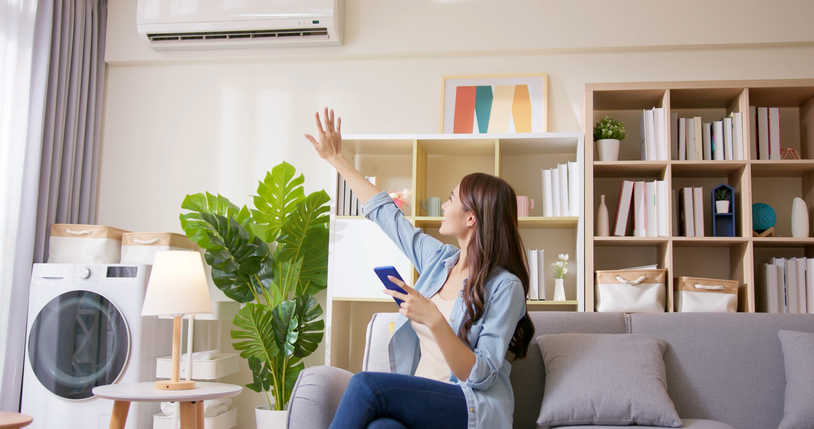Struggling with your AC not keeping your home cool? Don’t worry—we’ve got you covered. When the summer sun feels relentless, the last thing you need is a malfunctioning air conditioner turning your home into an oven. Not only is it frustrating, but it might also be a sign that something’s wrong with your AC system.
The good news? Many common problems can be fixed quickly once you understand what’s causing the issue. This guide simplifies the process so even if you’re not HVAC-savvy, you’ll know what to check and when to call a pro.
8 Common Reasons Your AC Isn’t Blowing Cold Air (And How to Fix It)
Before you call for professional help, here are a few common reasons your air conditioner might not be working properly. We’ve broken it down simple enough for anyone to follow.
1. Dirty Air Filter
A clogged air filter can block airflow, forcing your system to work harder and failing to distribute cold air effectively.
- What to Do: Locate your AC filter (check your user manual if unsure). If it appears dusty or hasn’t been replaced in a few months, swap it for a new one. Regular filter changes keep your system efficient and improve indoor air quality.
2. Thermostat Problems
Your thermostat might just need a quick adjustment or some fresh batteries to get things working again.
- What to Do:
- Make sure it’s set to “Cool” mode, not “Fan.”
- Double-check the temperature setting.
- If your thermostat uses batteries, try replacing them.
- For programmable thermostats, review your schedule settings to ensure it aligns with your cooling needs.
3. Low Refrigerant Levels
Refrigerant is what cools the air in your home. If your levels are low, it might indicate a leak that needs professional repair.
- Signs to Watch For:
- AC running nonstop but no cool air.
- Ice buildup on the outdoor unit or refrigerant lines.
- Hissing or bubbling noises (these could point to a leak).
- What to Do: Call a licensed HVAC technician to inspect for leaks, fix them, and refill the refrigerant as needed.
4. Dirty or Blocked Condenser Coils
The outdoor unit (condenser) releases heat from inside your home. If the coils are dirty or obstructed, they can’t do their job.
- What to Do:
- Turn off the power to your AC unit.
- Use a garden hose to gently rinse the coils.
- Remove any visible dirt, leaves, or debris.
- For heavy buildup, contact a professional for cleaning and maintenance.
5. Frozen Evaporator Coil
Restricted airflow or low refrigerant can cause your indoor evaporator coil to freeze. When this happens, no cool air can circulate.
- What to Do:
- Turn off your AC and allow the coil to thaw completely (this may take a few hours).
- Check the air filter and replace it if dirty.
- If it freezes again, get a professional to inspect for deeper issues, such as an airflow restriction or refrigerant leak.
6. Compressor Issues
The compressor is the heart of your AC system, helping to circulate refrigerant and transfer heat. If it’s failing, your AC may stop cooling effectively.
- Signs to Watch For:
- Strange noises from the outdoor unit.
- AC runs but doesn’t cool.
- Frequent breaker trips.
- What to Do: Call a trusted HVAC technician. Depending on the age and condition of your system, repairing or replacing the compressor may be necessary.
7. Electrical or Wiring Problems
Loose connections or faulty components can stop your AC from working altogether.
- What to Do:
- Avoid DIY repairs with electrical parts. These issues can be dangerous.
- A professional HVAC technician should diagnose and repair any electrical problems safely.
8. Leaky Ductwork
Even if your AC is producing cold air, leaks in your duct system can prevent it from reaching your living spaces.
- What to Do:
- Schedule a professional duct inspection.
- Seal leaks to improve airflow and ensure your cool air is delivered where it’s needed.
When to Call a Professional
If none of the above solutions work or you’re unsure how to proceed, don’t hesitate to call an AC repair specialist. Trying to fix complex issues yourself can lead to bigger problems (and costs!) down the line.
A technician can:
- Accurately diagnose the root problem.
- Recommend cost-effective repairs.
- Get your AC back to cooling your home efficiently.
Pro Tip: Don’t delay repairs. Ignoring AC problems can lead to higher energy bills, more expensive breakdowns, or even total system failure.
Stay Cool and Comfortable
Your AC system should help keep your home comfortable, not give you unnecessary headaches. Start with simple fixes like checking your air filter or thermostat, and if the issue persists, trust a professional to handle the heavy lifting.
Still no luck? Reach out to a certified HVAC company for an expert diagnosis. The sooner you act, the sooner you’ll enjoy a cool and comfortable home again.

